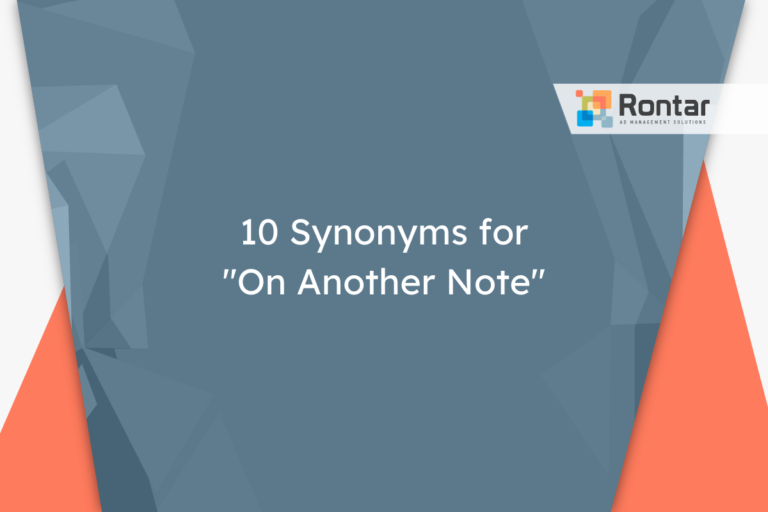10 Other Ways to Say “I Am Reaching out to You”

Communicating effectively via email is an art form, especially when initiating contact. The phrase “I am reaching out to you” is frequently used but runs the risk of sounding overused or impersonal. By exploring alternatives, you can make your emails more engaging and tailored to the specific context or relationship.
This guide presents ten varied ways to express this sentiment, enhancing both clarity and connection in your digital communications.
Is It Correct to Say “I Am Reaching out to You”?
The phrase “I am reaching out to you” is commonly used in a professional context to express the action of making initial contact with someone. The appropriateness and effectiveness of this phrase, however, can depend on various factors. Here, we will explore its pros and cons, and consider situations where an alternative expression might be more suitable.
Pros
- Polite and Respectful: It signals a polite and respectful attempt to initiate dialogue or ask for assistance.
- Versatile: It is generic enough to be used in multiple contexts, whether you’re contacting a potential business client, a colleague, or even a friend for a professional favor.
- Inclusive: The phrase includes the recipient in the process, suggesting a collaborative intention.
Cons
- Overused: Due to its popularity, the phrase can come across as clichéd or lacking in originality.
- Vagueness: It does not specify the reason for contact, which can leave recipients wondering about the specific purpose of the message.
- Lacks Urgency: When a rapid response is needed, its polite tone might reduce the perceived level of urgency.
Given these considerations, individuals might choose to use an alternative phrase if they wish to stand out in a crowded inbox or convey a more specific purpose in their communication. Using synonyms or related expressions can help tailor the message to more closely fit the context of the outreach, potentially making it more effective. For instance, if your reason for reaching out requires immediate action, a more direct phrase might elicit a quicker response. Moreover, varying your language can keep your communication fresh and engaging, helping to avoid the pitfalls of predictability.
10 Other Ways to Say “I Am Reaching out to You” in an Email
Finding the right words to initiate contact through email can be crucial for setting the tone of your communication. While “I am reaching out to you” is a common phrase, exploring various alternatives can add specificity and freshness to your message. Here’s a list of ten substitutes, each serving a slightly different purpose.
- I wanted to connect with you
- I’m writing to touch base on
- I hope this message finds you well
- I’m eager to get your input on
- Seeking your advice on
- This is a follow-up on our last conversation
- I have a proposition for you
- I’m getting in touch to discuss
- Reaching out for collaboration on
- I’d like to inquire about
1. I wanted to connect with you
This alternative carries a personal and sincere tone, making it suitable for reaching out to new contacts or strengthening existing relationships. It removes the formality found in the original phrase, making the intention of building a rapport more evident. This approach is best used when you’re aiming to establish a connection that goes beyond a one-time interaction.
Hi James, I wanted to connect with you and see if you would be interested in discussing potential collaboration opportunities between our companies. Best regards, John Doe
2. I’m writing to touch base on
This phrase adds specificity to your outreach by implying that there is an existing topic of discussion. It’s a great synonym for checking in on progress, soliciting updates, or continuing a conversation that was previously started. It suggests a degree of familiarity and ongoing communication, making it more suitable for ongoing projects or relationships.
Hi Emily, I'm writing to touch base on the Q3 projections we discussed last week. Have there been any updates? Kind regards, Jane Smith
3. I hope this message finds you well
Starting with this phrase immediately sets a considerate tone and is often used in formal contexts or when contacting someone for the first time. It’s less direct but very polite, opening the door for any type of communication that follows. This introduction is particularly useful when the sender wishes to be courteous or when the context of the outreach is sensitive.
Hi Joseph, I hope this message finds you well. I recently came across your work on renewable energy sources and would love to discuss how our research interests might align. Warmest regards, Emily Johnson
4. I’m eager to get your input on
This phrase explicitly expresses a desire for feedback and demonstrates an openness to the recipient’s opinions or insights. It’s more direct than the original and is perfectly suited for when you’re seeking advice, suggestions, or validation on specific topics or decisions. It’s especially effective when the sender values the recipient’s expertise or perspective.
Hi Ava, I'm eager to get your input on our new product line before the official launch. Your expertise in e-commerce strategies would be greatly appreciated. Best, Alex Brown
5. Seeking your advice on
Direct and to the point, this alternative openly solicits guidance or expertise from the recipient. It’s suitable for scenarios where there’s a clear hierarchy or acknowledged expertise, signaling respect for the recipient’s knowledge or experience. Use this when your primary goal is to acquire wisdom or learn from the recipient’s insights.
Hi Michael, Seeking your advice on how best to approach the upcoming policy changes. Your seasoned perspective would be invaluable to our team. Sincerely, Michael Rivera
6. This is a follow-up on our last conversation
This phrase indicates continuity from a previous interaction, making it an excellent choice for reminding the recipient about an existing topic or agreement. It suggests proactive communication and ensures that the discussion stays on the recipient’s radar. It’s particularly effective for nudging about pending actions or decisions.
Hi Charlotte, This is a follow-up on our last conversation about the annual conference. I was hoping to confirm your attendance. Kind regards, Samantha Lee
7. I have a proposition for you
The use of “proposition” instantly catches attention, setting a tone of offering or suggestion. It’s direct and indicates that the sender has something specific and potentially beneficial to propose. This phrasing is best when presenting a new idea, opportunity, or proposal that requires consideration or negotiation.
Hi Charles, I have a proposition for you regarding a joint venture that I believe will be mutually beneficial. Cheers, Daniel Kim
8. I’m getting in touch to discuss
Similar to the original phrase but more direct, this option specifies that there’s a particular topic you want to discuss. It’s ideal for initiating discussions on specific issues, projects, or ideas. Use this when you want to clearly set the agenda for your communication.
Hi Olivia, I'm getting in touch to discuss the recent changes in market trends and how they may impact our strategy. Warm regards, Nicole Thompson
9. Reaching out for collaboration on
This phrase is targeted and purposeful, specifically highlighting the intent to collaborate. It’s an excellent choice for initiating partnerships or team projects, suggesting a kind of synergy or joint effort. Use this when proposing a collaborative effort that requires the active participation of both parties.
Hi Thomas, Reaching out for collaboration on the upcoming environmental campaign. We believe your organization’s expertise could greatly enhance the project. All the best, Kevin Moore
10. I’d like to inquire about
Formal and polite, this choice is perfect for situations where you are seeking information or clarification. It implies a question or a series of questions follow. This phrasing is particularly useful in research, information gathering, or when soliciting services or responses.
Hi Evelyn, I’d like to inquire about the availability of your consulting services for a project we’re initiating in Q2. Regards, Jeff Anderson
Final Thoughts
Choosing the right words can transform a simple email into a powerful communication tool. Each alternative to “I am reaching out to you” mentioned in this guide serves a unique purpose, enabling you to craft messages that resonate more deeply with your recipients. Whether you aim to solicit feedback, propose a collaboration, or simply check in, tailoring your approach can significantly impact the response you receive.
Remember, the goal is to be clear, respectful, and engaging, ensuring your emails stand out for all the right reasons. Exploring these synonyms and adjusting your language based on the context and relationship can not only improve your email effectiveness but also enhance your overall communication skills.






